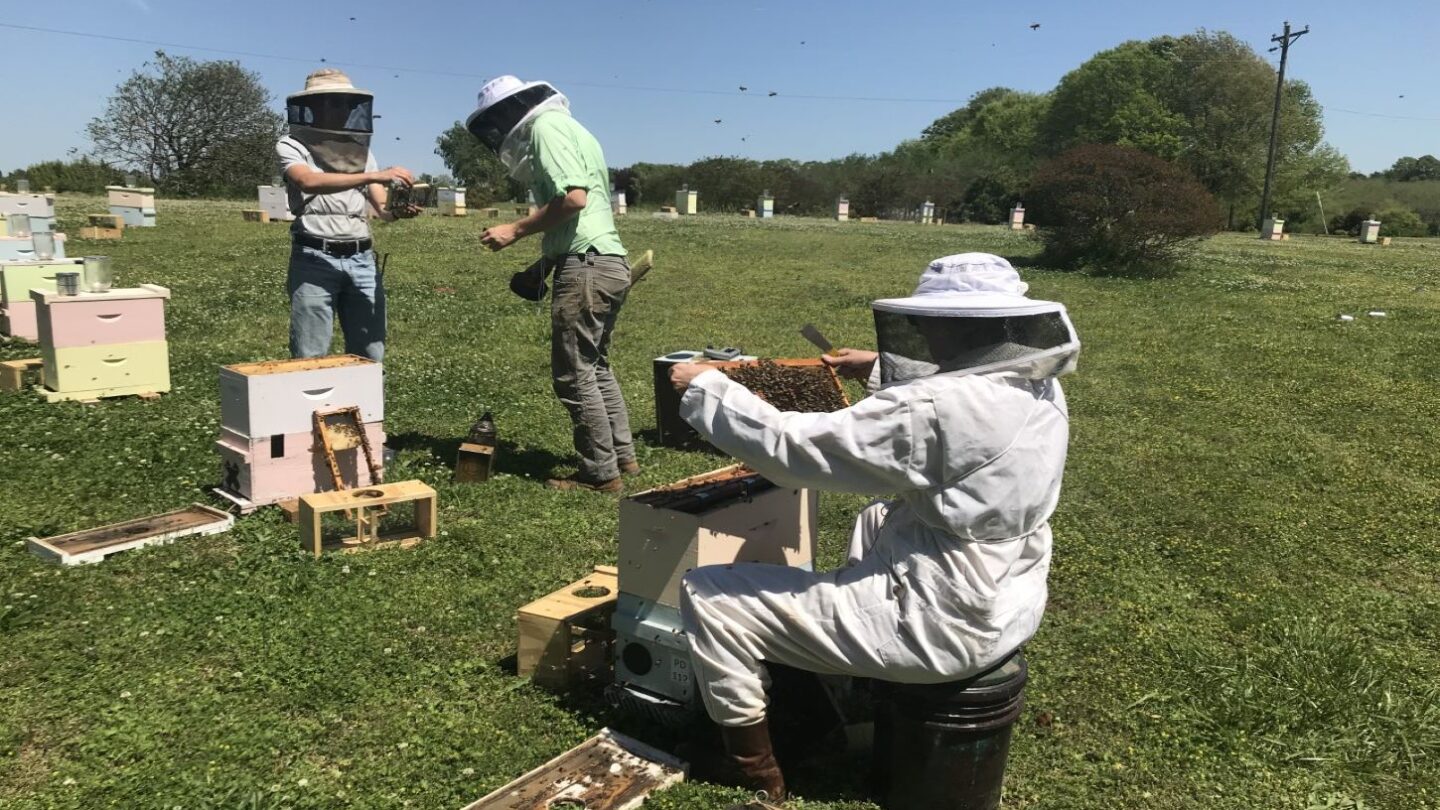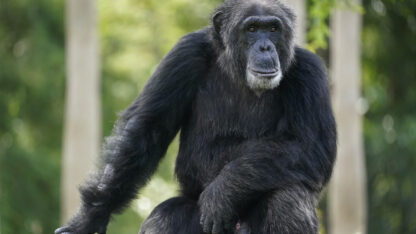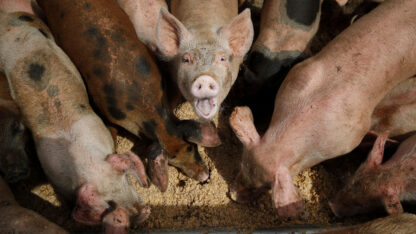This coverage is made possible through a partnership with WABE and Grist, a nonprofit, independent media organization dedicated to telling stories of climate solutions and a just future.
Researchers have developed the world’s first vaccine for honeybees – and field tested it here in Georgia.
Earlier this month, the US Department of Agriculture granted a conditional license for the vaccine against American Foulbrood, a devastating bacterial disease. The news is heartening for beekeepers like Marcus Pollard, who keeps about 70 hives on his farm in Fayetteville, south of Atlanta.
He spoke with WABE over Zoom recently, pointing his phone’s camera inside a healthy colony where the bees were hunkered down for winter.
“What they do when it is cold, they cluster around the queen to keep her warm and the cluster of bees warm, and they just go around and eat honey,” he explained.
The insects in his video were busily crawling all over their frames inside the hive, making honey for winter.
It would be a different story if these bees picked up the bacteria that causes American Foulbrood.
“As soon as you would open it up, you would get a very rancid smell,” Pollard said.
The bees inside would die, leaving behind a sticky residue filled with bacteria. That, in turn, would put all the nearby hives at risk, because bees could visit and take the deadly bacteria back to their colonies. So there’s no choice but to burn an infected hive.
“It can wipe out my entire operation, you know, in a week or two,” Pollard said.
That’s one reason the new vaccine, developed by biotech firm Dalan Animal Health, could be a game changer. The USDA’s conditional license means there’s an urgent need for it as testing continues.
The vaccine works by feeding a safe version of the American Foulbrood or AFB pathogen to queen bees, which they pass on to their eggs.
“Each egg has particles of the AFB bacterium, so that the adult that emerges from that egg is born primed for immunity against that pathogen,” said Keith Delaplane, the director of UGA’s bee program. Whole colonies of bees then become immune to the disease.
American Foulbrood is just one threat to honeybees. Climate change can shift where their favorite plants grow and harm bee habitat.
Warmer temperatures also help mosquitoes spread. Delaplane said that can mean more people spraying insecticides where honeybees live, which “doesn’t do them any good.”
Plus, plenty of other diseases can devastate bees, including viruses spread by parasitic mites. That’s one reason scientists are so excited about this vaccine: it could lead to more bee health breakthroughs.
“If we can make a really heavy hit against American foulbrood, varroa mite viruses, this will be a huge step forward,” Delaplane said.









